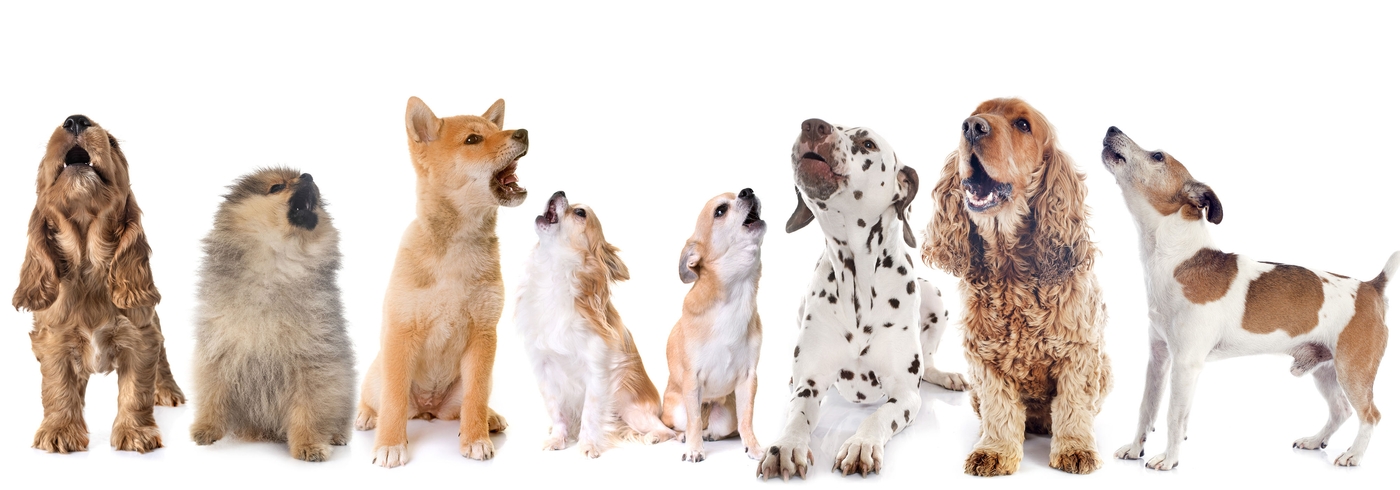
Dog Howling: Why Do Dogs Howl and What To Do About It If It’s Excessive?
Howling can have a number of different causes, and excessive howling can be stressful for everyone. Here’s what to do when howling becomes more than you can handle.
Dogs love to use their voice to communicate. They may vocalize through a bark, a shriek, or a howl. What better way to communicate than by channeling their inner wolf with a howl?
While howling is sometimes normal behavior, excessive barking and howling can signify temperament issues. When your dog’s howling becomes excessive, it may be time to get to the bottom of the problem.
Let’s learn more about why dogs howl and how you can control it.
What Is A Dog Howl?
Howling is an instinctual behavior.
Fun fact: wolves use howling to let members of the pack know their whereabouts. These canine ancestors also howl to warn away intruders by audibly threatening them to stay out of their territory.
Dog’s don’t necessarily use howling in the same manner as their ancestors, but they still inherited the trait.
Certain breeds are particularly known to howl – including Beagles, Huskies, Hounds, Alaskan Malamutes, American Eskimo Dogs, Dachshunds, and Coonhounds. Though your dog doesn’t need to be one of these breeds to love vocalizing and howling – nearly all dogs can perform this behavior.
Howling vs. Other Dog Sounds
Dogs communicate using various sounds like barks, howls, growls, whines, groans, or sighs.
To the human ear, a howl may come across as eerie or mournful to some. And comical to others. It travels further than a normal bark, making it a solid form of communication between dogs over long distances.
On the other hand, a bark is a short, explosive cry. It can indicate joy, fear, anger, frustration, or need. Dogs have different barking voices, and each one stems from a different cause or reason.
Whining is one way dogs demonstrate and vocalize fear or anxiety. It may result from your dog wanting something from you – be it a toy, food, or attention. It could also be a sign that your dog is experiencing physical discomfort. Or simply that your dog is anxious or nervous about their current environment.
Dogs use growling as a warning mechanism. The sound of a growl and the snarls that follow are meant to be intimidating and scare away potential threats to them or their pack (i.e. you!).
Why Do Dogs Howl?
There is an abundance of reasons why dogs decide howling is the best form of communication.
- To get your attention
- Alerting that there is danger nearby or protecting their territory
- Greeting and acknowledging other dogs
- Separation or generalised anxiety
- Medical issues
- Responding to high pitched frequencies or sounds
Seeking Attention
Dogs want attention from their owners, and they aren’t afraid to vocalize it. Here are a few scenarios in which dogs may use howling to grasp your attention.
Boredom
When boredom strikes, some dogs will take to howling to get your attention. The howl can be ear-piercing and bothersome – and it works. Owners come rushing at the first sound of a howl, worried that something may be wrong.
Come This Way
Your dog may be trying to get your attention to call you over to them in a way similar to their ancestors, who would use howling as a location beacon so members of the pack could find each other. Your pup may be calling out to you, guiding you back to where they are in the home.
Proud Moment
When a child gets excited, they try to get their parents’ attention to show them a good deed or an accomplishment. Dogs are the same way; and will vocalize their excitement in an attempt to get you to join their puppy party.
Feeling Annoyed
There may be something getting on your dog’s nerves, and howling is their way of telling you that they have had ENOUGH. Keep in mind that your dog’s hearing is much better than yours, so sirens, beeps, and alarm clocks can be particularly irritating.
Protecting Their Territory
Like their wolven brethren, dogs howl to warn or threaten invaders to stay away if they get too close.
Have you ever had a stranger come to the door, and instead of barking, your dog chooses to howl? You’ve probably noticed the distinct difference in attitude and tone; different from a casual bark at the mailman. Your dog was on high alert – howling to give a fright to the potential intruder, and also alerts the pack about possible danger ahead.
Separation Anxiety
This one may be difficult to diagnose unless another person witnesses the behavior in your absence. Dogs love their owners and can become overly attached. When their owner leaves, separation anxiety sets in – causing your pooch to howl and moan about being left alone. anxiety causes dogs to howl excessively when they are left alone.
Let’s face it. Some dogs don’t want to be away from their best friend.
Separation anxiety comes with additional symptoms. Dogs may be seen:
- Pacing the floor
- Chewing or destroying furniture or shoes
- Relieving themselves indoors
- Showing signs of depression and lethargy
Medical Concerns
If your dog is not known to howl often and suddenly begins to be vocal, there may be an injury or a medical issue that needs attention. When the human pain threshold is too high, people begin to cry. Your dog does the same through a howl.
If you find that your dog is howling unusually, look them over for any visible injuries. Also contact your veterinarian to examine your dog and rule out illness or injury.
Howling At Sirens
Dogs react to specific noises. Fire Trucks, police cars, and ambulances are infamous triggers for dog howling. There is no known reason why dogs join into the call, but it may have something to do with the frequency.
Unfortunately, this one is out of your control. But don’t worry, the howling should stop as soon as the sirens are far enough away.
Other sounds may also trigger dogs to howl, like certain songs on the radio or sounds coming from the television.
Or maybe you encourage your dog to howl just because you think it’s hilarious. Have fun with it! They’ll think it's a blast as well; they’ll just want to be a part of the action, too.
Excessive Howling? Here’s What To Do
If you have a dog that loves to howl, don’t fret. There are things that you can do to curb this behavior, depending on the cause.
- Spend more time with your dog: Look to the root cause of the howl. Lonely dogs will howl because they want someone to pay attention to them or play with them. Get ahead of the game and spend as much time as possible with your dog.
- For dogs that howl for attention: Try to resist the urge to respond while your dog is howling. Instead, patiently wait for the behavior to stop. Your dog needs to learn that howling won’t get them any extra attention.
- Then swoop in with rubs, rewards, and lots of positive reinforcement when your dog is quiet. Remember, a reward doesn’t necessarily need to be a tasty treat. Simply making eye contact or giving a positive vocal cue back to acknowledge them can be enough.
- For dogs that react to sounds with howling: Although a sound triggers this type of behavior, there is a way you can desensitize and counter condition your dog, teaching them to be less noisy and quieter. Desensitization and counterconditioning are used to treat fears, anxiety, phobias, and aggression. The end goal is to discover the trigger and stop it in its tracks.
- Contact a Certified Professional Dog Trainer [CPDT]: Call in the cavalry or the specialist when all else fails. Trainers can provide in-group and personal sessions with your dog, minimizing the need for a dog to howl.
The Bottom Line
It’s normal for dogs to howl. It’s a form of vocal expression and can have many meanings. The key is listening to what is taking place that may be causing your dog to howl.
If howling gets too overwhelming for you, take a deep breath. Then, knock out the unwanted behavior through training exercises designed to redirect the behavior.
For more helpful info on tackling everyday obstacles with your pup, check out the Finn blog here!
Sources:
Why Do Dogs Howl? | American Kennel Club
Why Do Dogs Howl When You Howl? (8 Reasons Explained) | Not a Bully

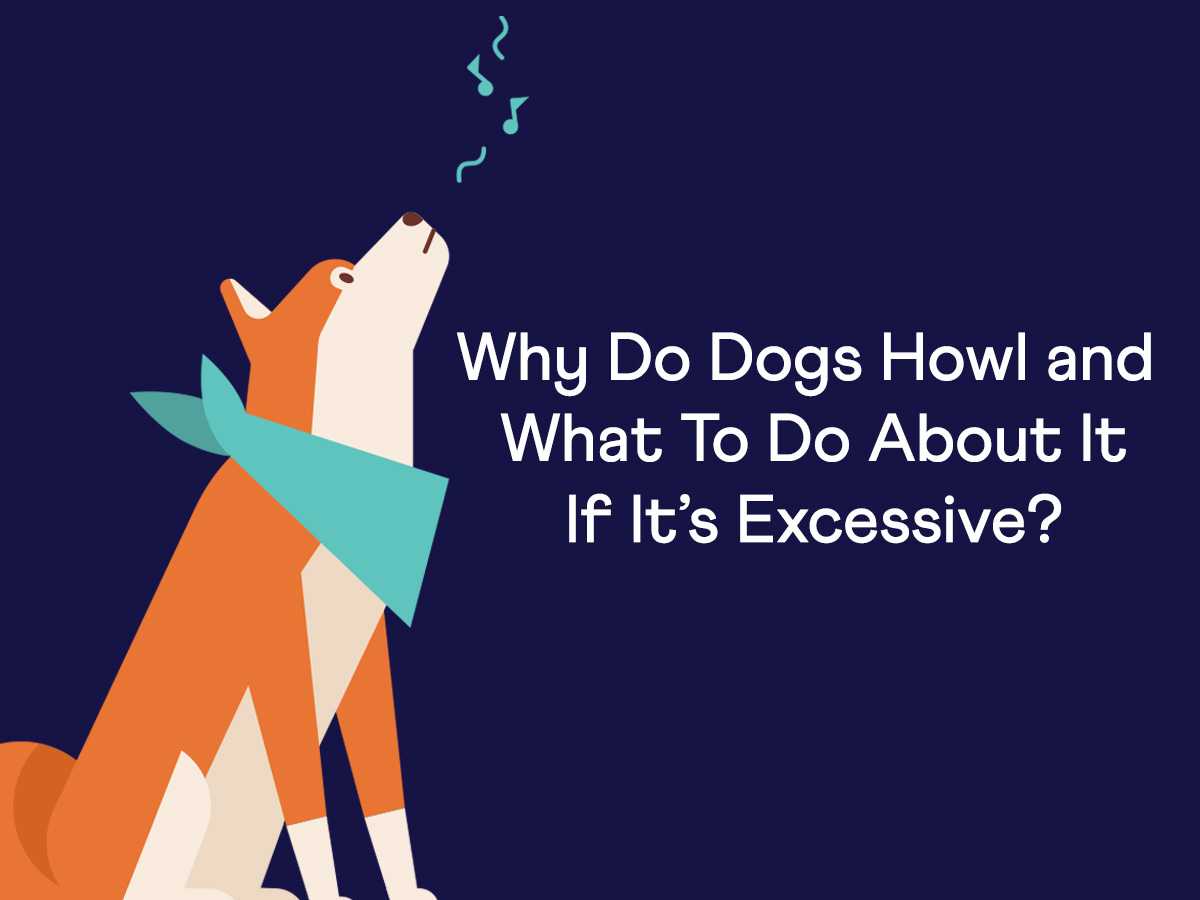
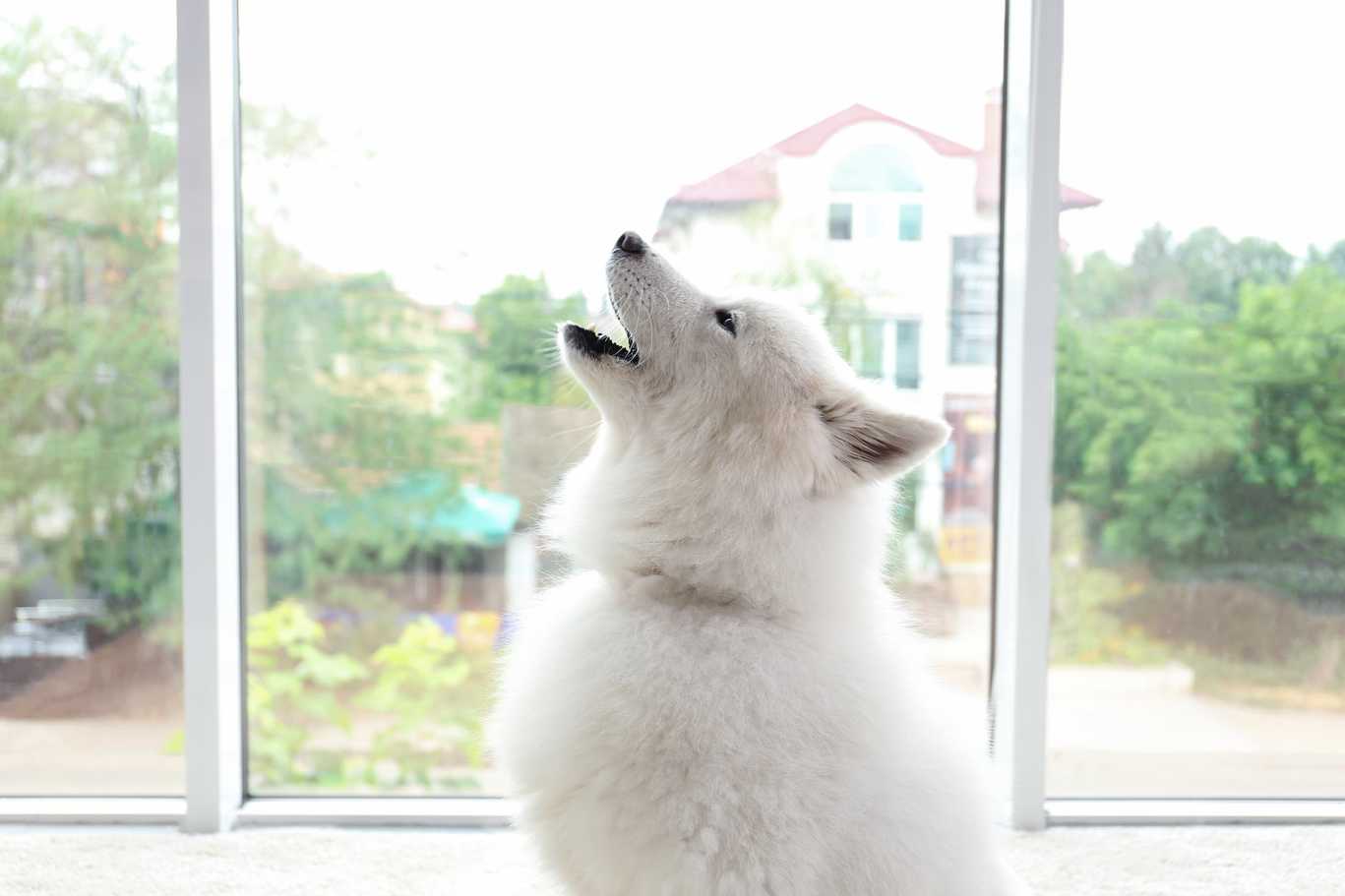
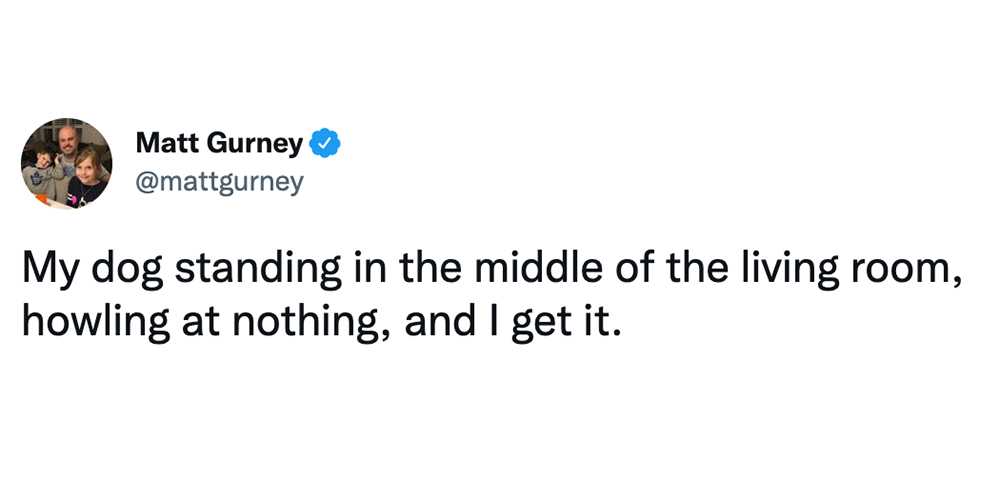
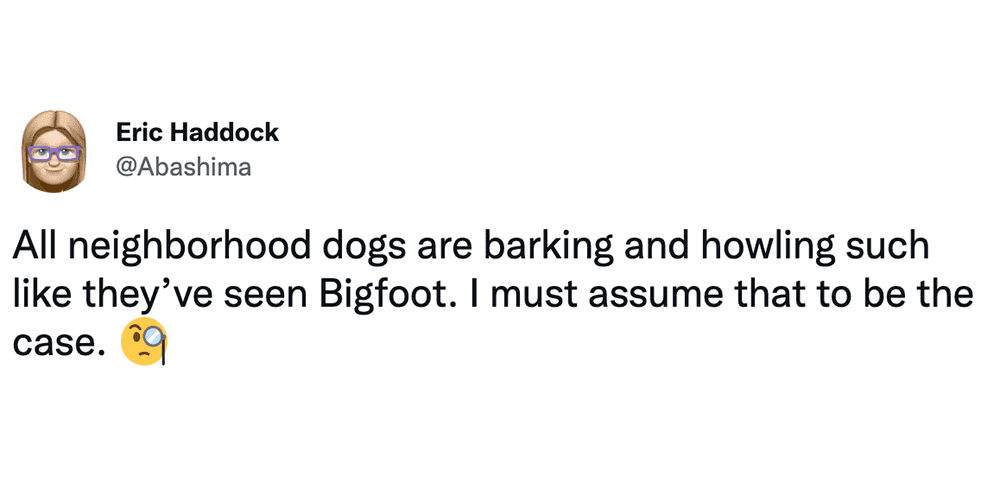
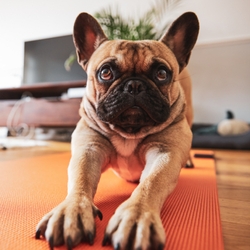

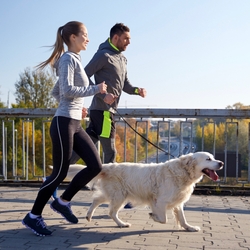
Comments: